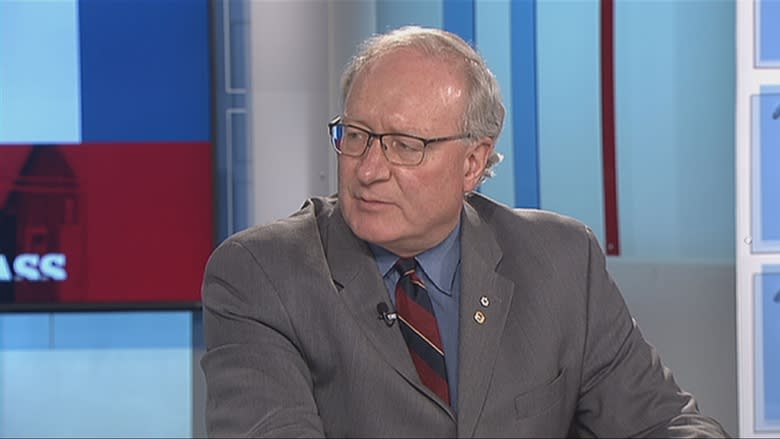Saskatchewan's Brad Wall approval rating No. 3 among premiers
After riding high on the waves of popular opinion polls for years, a new survey says Saskatchewan's premier is not Canada's most popular these days.
Brad Wall has the third-highest approval rating when it comes how people in the provinces rate their own premiers, according to a Mainstreet poll done for Postmedia that was released Friday.
Wall's 52 per cent approval rating was higher than most premiers, but lower than P.E.I.'s Wade MacLauchlan (55 per cent) and Manitoba's Brian Pallister (54 per cent).
Previous public opinion surveys by another polling firm, the Angus Reid Institute, have long pegged Wall as Canada's most popular premier.
In addition to the 52 per cent who said they approved of Wall's performance, 43 per cent said they didn't approve and five per cent said they didn't know.
Meanwhile, Prime Minister Justin Trudeau received a 65 per cent approval rating (although only 48 per cent in Saskatchewan).
The poll was taken Oct. 5-6 — shortly after Trudeau shocked premiers with a carbon pricing announcement that Wall called a "betrayal". Starting in 2018, polluters are to be charged $10 per tonne of carbon, with the amount ramping up to $50 a tonne by 2022.
The poll also asked Canadians across the country what they think of the premiers of other provinces, as well as their own.
Quebec's Phillipe Coulliard came in with first place: 45 per cent national approval. He was followed by Alberta's Rachel Notley (44 per cent) and Wall, again in third place with a national approval rating of 42 per cent.
The Oct. 5-6 poll by Mainstreet/Postmedia asked 5,525 Canadians if they approved or disapproved of the way different premiers and the Prime Minister were handling their jobs.
On the Canada-wide questions, a randomized sample of that size would have a margin of error of plus or minus 1.33 per cent, 19 times out of 20.
The Saskatchewan part of the poll involved 431 participants. A randomized sample of that size would have a margin of error of plus or minus 4.72 per cent, 19 times out of 20.
The P.E.I. part of the poll involved 302 participants. A randomized sample of that size would have a margin of error of plus or minus 5.63 per cent, 19 times out of 20.
The Manitoba part of the poll involved 439 participants. A randomized sample of that size would have a margin of error of plus or minus 4.68 per cent, 19 times out of 20.



